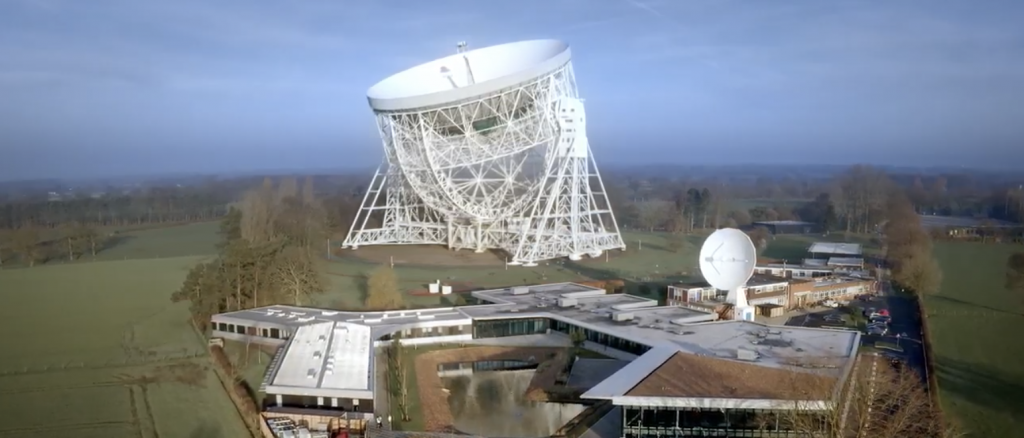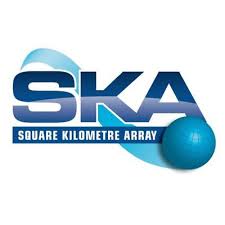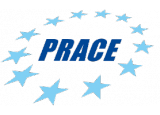The Avalon 2019 report is available as well as all activity reports since 2012.
Author: Christian Perez
SKA Telescope

The Square Kilometre Array (SKA) project is an international effort to build the world’s largest radio telescope, with eventually over a square kilometre (one million square metres) of collecting area. The scale of the SKA represents a huge leap forward in both engineering and research & development towards building and delivering a unique instrument, with all final reviews completed ahead of construction. The SKA Observatory is the second intergovernmental organisation dedicated to astronomy in the world, a er the European Southern Observatory. It brings together a wealth of the world’s finest scientists, engineers and policy makers to bring the project to fruition.

SKA-France is a national coordination of industrial, technical and scientific activities preparatory to the SKA project in France. It created a consortium named “Maison SKA-France” to finance France’s membership in the Project Office, to define the French scientific and technological roadmap for the
SKA, and to pursue the development of joint research projects between public and private partners targeting SKA major challenges. Inria as a member of “Maison SKA France” brings its expertise in some challenging aspects of the project such as in high performance computing, big data, resource management, I/O, and IA. Avalon coordinates this effort.
PRACE 6th Implementation Phase Project
Summary

PRACE, the Partnership for Advanced Computing is the permanent pan-European High Performance Computing service providing world-class systems for world-class science. Systems at the highest performance level (Tier-0) are deployed by Germany, France, Italy, Spain and Switzerland, providing researchers with more than 17 billion core hours of compute time. HPC experts from 25 member states enabled users from academia and industry to ascertain leadership and remain competitive in the Global Race. Currently PRACE is finalizing the transition to PRACE 2, the successor of the initial five year period. The objectives of PRACE-6IP are to build on and seamlessly continue the successes of PRACE and start new innovative and collaborative activities proposed by the consortium. These include: assisting the development of PRACE 2; strengthening the internationally recognised PRACE brand; continuing and extend advanced training which so far provided more than 36 400 person·training days; preparing strategies and best practices towards Exascale computing, work on forward-looking SW solutions; coordinating and enhancing the operation of the multi-tier HPC systems and services; and supporting users to exploit massively parallel systems and novel architectures. A high level Service Catalogue is provided. The proven project structure will be used to achieve each of the objectives in 7 dedicated work packages. The activities are designed to increase Europe’s research and innovation potential especially through: seamless and efficient Tier-0 services and a pan-European HPC ecosystem including national capabilities; promoting take-up by industry and new communities and special offers to SMEs; assistance to PRACE 2 development; proposing strategies for deployment of leadership systems; collaborating with the ETP4HPC, CoEs and other European and international organisations on future architectures, training, application support and policies. This will be monitored through a set of KPIs.
Project Information
- URL: CORDIS web site
- Starting date: 01/05/2019
- End date: 31/12/2021
MRSEI Fennec
FastEr NaNo-Characterisation
L’objectif du projet FENNEC de l’ANR-MRSEI est de faciliter le montage d’un projet pour l’appel DT-NMBP-08-2019 intitulé « Real-time nano-characterisation technologies (RIA) ». La caractérisation à l’échelle nanométrique permet d’avoir des informations uniques sur la structuration et les propriétés des matériaux et des dispositifs mais nécessite une expérience pointue dépendant des matériaux envisagés, des temps d’acquisition, de dépouillement et d’analyse, incompatibles avec les contraintes d’une ligne de production industrielle. Cet appel souhaite réduire d’abord ces différentes contraintes notamment en accélérant l’acquisition et l’analyse des données instrumentales. Il veut aussi pouvoir valoriser plus facilement les résultats de nano-caractérisations avancées.
Start Date: 2018, August 1st
Duration: 24 months
Leader: T. Deutsch (CEA/MEM)
Avalon Members: C. Perez, E. Caron
Performance, Maintainability and Scalability of In-Silico Experimental Evolution Simulation (PMSISEE)
Overview
 The goal of PMSISEE is to support the collaboration between the Avalon (LIP) and Beagle (LIRIS) teams through research activities on programming modelsand tools for HPC applied to the Aevol/R-Aevol simulator of in silico evolution of bacteria.
The goal of PMSISEE is to support the collaboration between the Avalon (LIP) and Beagle (LIRIS) teams through research activities on programming modelsand tools for HPC applied to the Aevol/R-Aevol simulator of in silico evolution of bacteria.
Scientific objective
A population of organisms adapting to a new environment is a dynamic system changing over time at many levels (molecules, networks, individuals, ecosystems). A large amount of empirical and theoretical evidence indicates that in real populations all these levels interact, making the dynamics of adaptation a highly complex phenomenon. In order to understand bacterial evolution, we need large-scale integrative models in which all relevant levels from the molecule to the ecology are simulated. The Aevol/R-Aevol simulator (http://www.aevol.fr) has been developed by the Beagle team to address such questions. Aevol integrates the molecular and cellular levels to address the evolution of genomic complexity. R-Aevol adds the network level to investigate the evolution of network complexity.
Challenges
In this project we consider the Aevol/R-Aevol simulator, or equivalent code, as the object of the study. At a first glance, it is characterized by several properties: the code is complex due the models to integrate; the amount of computational resources required for simulations is huge when considering the size of the systems (millions of base pairs in the genome, thousands of genes in the genetic network, billions of individuals in the population, billions of generations); load unbalance occurs when running the models under different conditions ( i.e., different parameters). Any gain in performance, will make these simulations very valuable to understand bacterial evolution and to have feedback on the biological models in order to improve them.
The research during the PMSISEE project will be restricted to two main issues related to the software and its algorithms: 1/ analysis and design of specialized models to tackle software complexity in the context of HPC using next generation of parallel supercomputers. This point is based on advances in software engineering of these last twenty years in particular with respect to code composability and re-use using component model; 2/ performance analysis and design of new, or improvement of existing, algorithms for scalable and efficient simulation of evolving bacterial populations on modern parallel architecture. This axis will deal with heuristics for scheduling in order to well balance the work load and reducing communication.
Duration: 2017-2019
